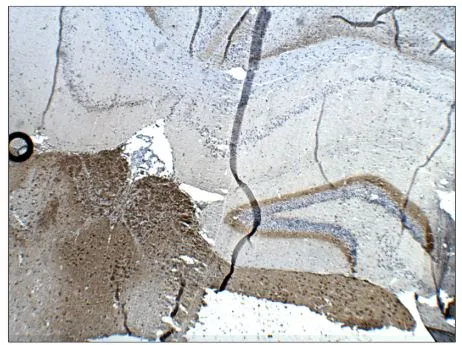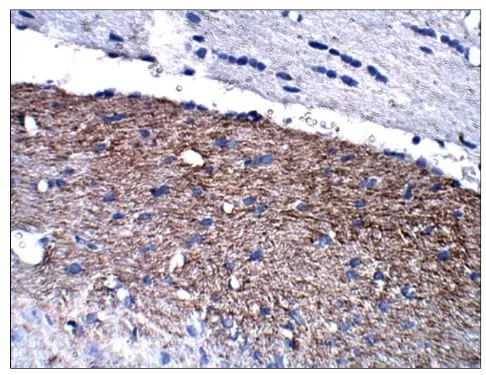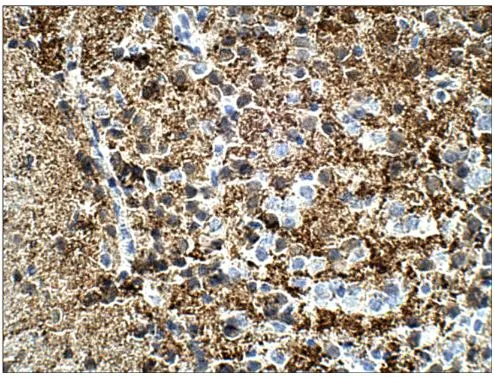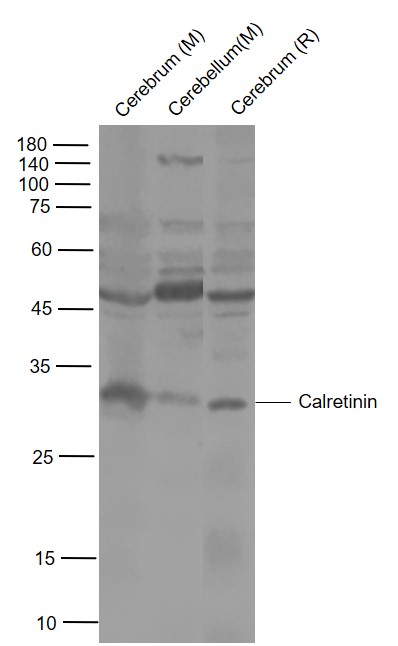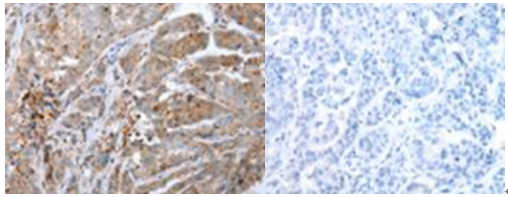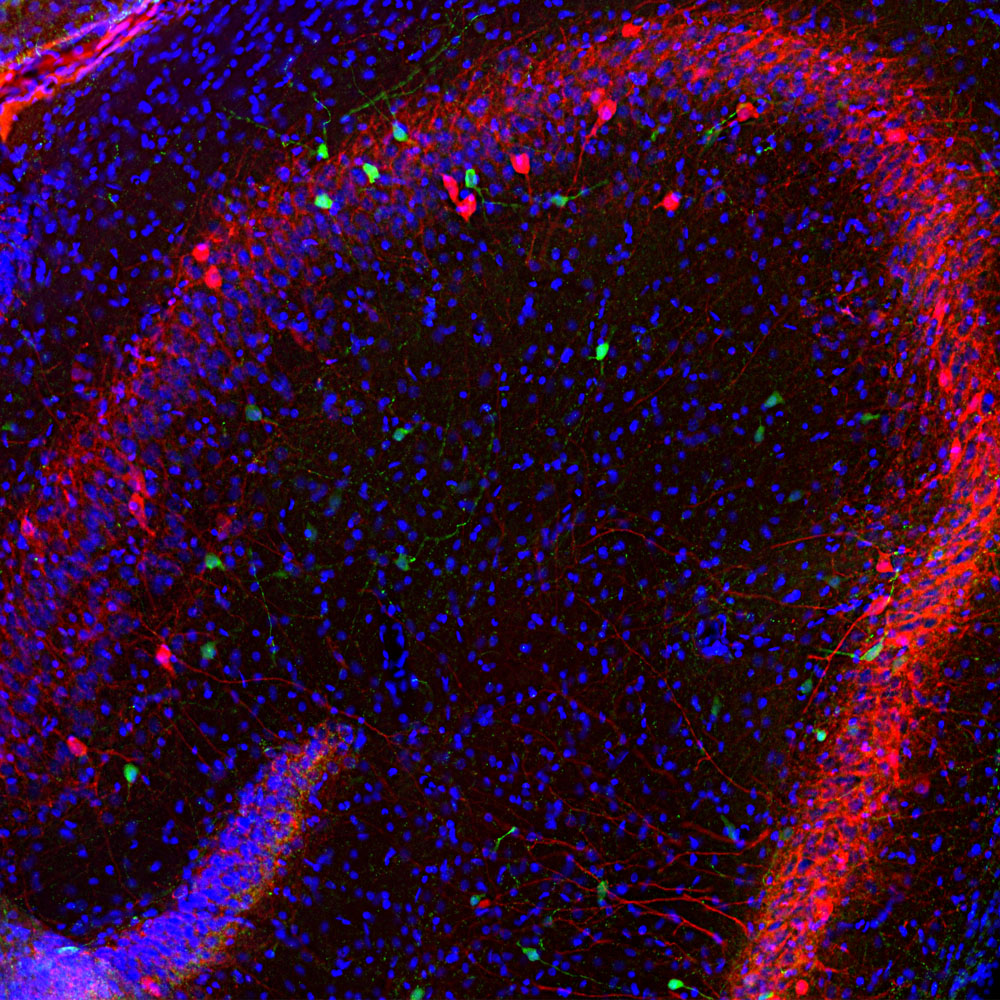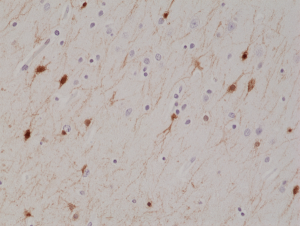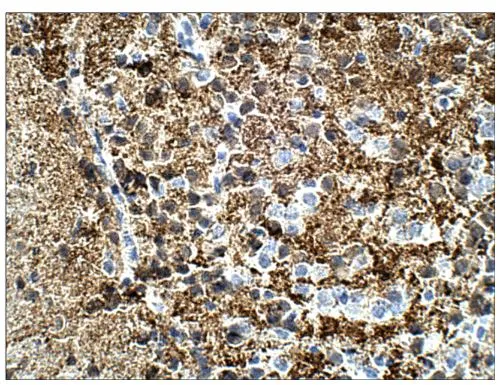
IHC-P analysis of mouse brain tissue using GTX14689 Calretinin antibody. Dilution : 1:100
Calretinin antibody
GTX14689
ApplicationsImmunoFluorescence, ImmunoPrecipitation, Western Blot, ELISA, ImmunoCytoChemistry, ImmunoHistoChemistry, ImmunoHistoChemistry Paraffin
Product group Antibodies
ReactivityHuman, Mouse, Rat
TargetCALB2
Overview
- SupplierGeneTex
- Product NameCalretinin antibody
- Delivery Days Customer9
- Application Supplier NoteWB: 1:500. ICC/IF: 1:50-1:200. IP: 1:200. ELISA: 1:10000. *Optimal dilutions/concentrations should be determined by the researcher.Not tested in other applications.
- ApplicationsImmunoFluorescence, ImmunoPrecipitation, Western Blot, ELISA, ImmunoCytoChemistry, ImmunoHistoChemistry, ImmunoHistoChemistry Paraffin
- CertificationResearch Use Only
- ClonalityPolyclonal
- Concentration0.65 mg/ml
- ConjugateUnconjugated
- Gene ID794
- Target nameCALB2
- Target descriptioncalbindin 2
- Target synonymsCAB29, CAL2, CR, calretinin, 29 kDa calbindin, calbindin 2, (29kD, calretinin), calbindin D29K, testicular secretory protein Li 8
- HostRabbit
- IsotypeIgG
- Protein IDP22676
- Protein NameCalretinin
- Scientific DescriptionThis gene encodes an intracellular calcium-binding protein belonging to the troponin C superfamily. Members of this protein family have six EF-hand domains which bind calcium. This protein plays a role in diverse cellular functions, including message targeting and intracellular calcium buffering. It also functions as a modulator of neuronal excitability, and is a diagnostic marker for some human diseases, including Hirschsprung disease and some cancers. Alternative splicing results in multiple transcript variants. [provided by RefSeq, Jun 2010]
- ReactivityHuman, Mouse, Rat
- Storage Instruction-20°C or -80°C,2°C to 8°C
- UNSPSC12352203

